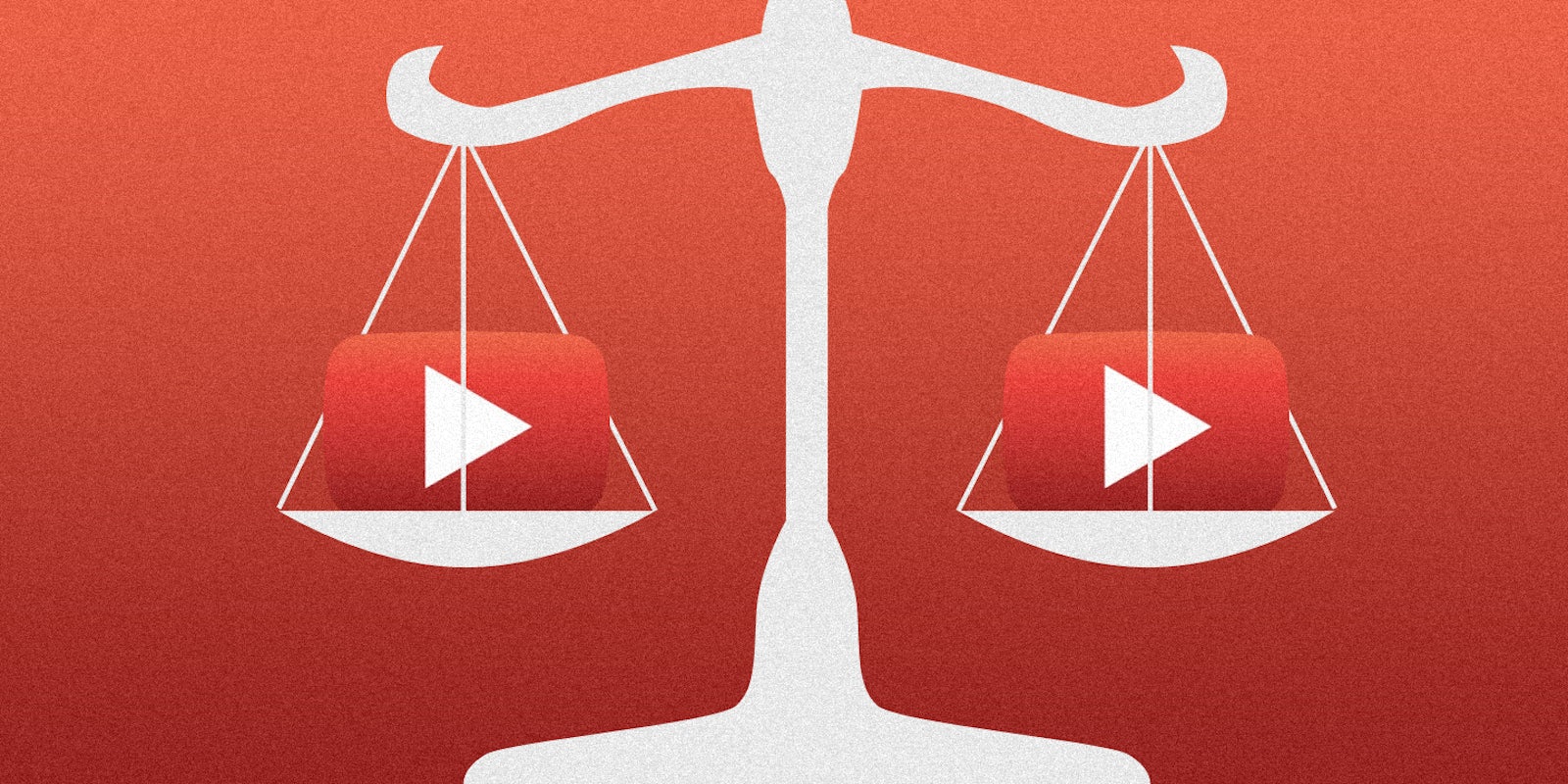A pair of YouTubers have won a major settlement that turned their initial $1,500 investment in the channel VideoGames into a $20 million ruling.
For many YouTubers, what started as a hobby has morphed into a full-time profession worth hundreds of thousands, if not millions of dollars. What was once a casual deal between friends or small companies and creators has turned into a big business, and a new ruling out of Texas will likely shape YouTube partnerships for years to come.
A Dallas court ruled in favor of plaintiffs David Tyler Moss (known as Ty Moss) and Brandon Keating to the tune of $20 million in damages for their lawsuit contesting the ownership and owed profits from the YouTube channel VideoGames. The suit stems from small investments made by Moss and Keating into VideoGames, which is run by YouTubers Marko Princip and Brian Martin, who’s been previously accused of botting on the platform. Moss and Keating invested $1,500 in exchange for 30 percent of the business. According to Social Blade, the channel, which now has 3.3 million subscribers and is represented by Studio71, earns between $3,500 and $55,000 per month. Based on earnings of $2.5 million for the channel, the jury awarded the plaintiffs 60 percent of that $2.5 million, plus future earning in excess of $1.5 million and $16 million in punitive damages.
“There were written contracts that were entered into evidence, and those contracts the jury found created rights that went above and beyond what was in the contracts,” explained attorney Victor Vital, who worked for the plaintiffs. He elaborated that the jury ruled a partnership had been formed between the men, entitling them to the earnings Princip and Martin had previously denied them. For Vital the key to a favorable verdict was in part thanks to the work they did to educate the judge and jury about the realities of the YouTube business model.
“The majority of the jury was not of the millennial generation,” Vital told the Daily Dot. “We were talking to Xers and Boomers who know about YouTube tangentially if at all. They might know about YouTube from their family or personal videos, but this concept of monetizing content on YouTube for revenue generation was new.”
In the wake of the case ruling, Vital expects many other YouTubers to come forward to at least explore if they have a similar case to be made. Vital recommends any YouTubers who work together on joint-venture channels should consult an experienced entertainment lawyer to ensure that everyone’s rights are defined.
“This industry is going to have to mature … and appreciate that the law is going to treat the industry just like any other industry,” he said. “The law is the law.”
Now that the jury has spoken, Vital said the judge must enter a judgment on the verdict, which they expect to be “well in excess of 10 million dollars, approaching 20 million.” They also hope there will be further determinations as to who gets to control the channel and remain part of the partnership. At that point, Princip and Martin will have appellate rights.
“Their lawyer has made it clear they plan to appeal, as is their right,” he said.
The case is far from the first to spring up between YouTubers over control and rights, from Grace Helbig’s departure from her MyDamnChannel contract and controlled account, to the recent case between Junkin Media and Ray William Johnson over Fair Use and copyright claims. Keating and Moss are rightfully pleased by the current outcome—and by what it means for the future of transparency and fair business dealings for the YouTube community.
“I am pleased that a jury has awarded me and Ty Moss our rightful ownership in the VideoGames YouTube channel,” Keating said in a statement. “With the YouTube industry still being in its infancy, it is my hope that this verdict sends a powerful message to the community that we should always operate in the most transparent and honest way possible. A contract is a contract, and we creators should always honor our agreements.”


